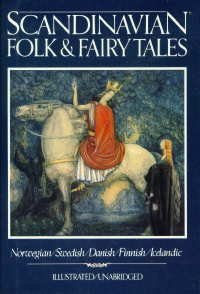The lovely Natalie Dowling is the bespoke writer behind Words on a Page (WOAP).
I’ve asked Nat to help me in the past, and loved her input. Nat introduced me at my latest book launch (back in 2019, when we had actual book launches!)

Today I’m asking Natalie to share some advice for creative people about the business of their creativity.
It’s not enough, as we know, to write a book. For example, the book needs a pitch and its author needs a bio. There is a business attached to storytelling.
In today’s blog, Nat is going to take us through some exercises to help us discover who we are – what values stand behind our creativity. Nat also shares some activities to help writers define who they are and what they have to share.
THE BUSINESS OF WRITING
Writing for business is not the same as writing for creativity or self-expression.
As an author or writer you’re probably well versed in the latter. But if you want to get those words out into the world, at some point, you might need to think of yourself as a creative business.
That means developing a profile and talking about yourself with a brand story. Which might feel like sticking pins in your eyes. So, here’s a few tips for when you get stuck developing your bio or preparing the perfect pitch.
Accept the challenge
Talking about yourself to sell your work is difficult. Possibly unnatural. If you’re struggling to write about you, understand that that this block is not a reflection of your writing capabilities. It’s the tricky human dance between hubris and humility. Many people feel challenged by this task, so acknowledge the difficulty and give yourself time and space to have a go.
Brain dump words
Let your ego off the leash. Without overthinking it jot down an intuitive list of words that describe your work, or how you’d like to be thought of by others. Come back to the list. Feel into the words and whittle them down. Circle the most important 30. Then cull it to your top 20. Be the ruthless editor of your own story. Repeat, to get it down to three words. Use these as themes for your bio.
Draft multiple bios
If it starts to feel like you’re pigeon-holing yourself, try writing in different styles. Write a free range playful version. Then go for bureaucratic and perfunctory (a few games of buzzword bingo will introduce you to the industry lingo). You can also give yourself word length exercises. Write 50, 150 and 300 word versions. Deposit them in your bio bank, then access the appropriate version to fit the context.
Nail your narrative
Distil your work into 30 words. Nail your narrative in the most succinct way. Another option is to pitch it to a room full of ten year olds (real or pretend). Get over any idea that this is ‘dumbing down’. Conveying your work simply does not detract from the complexity of the ideas. This exercise can help you to step back out of your mind forest to see the wood for the trees.
Stage an interview
Sometimes we need prompts or an outsider to help us see what’s buried below the surface. Call in a friend or colleague to ‘interview’ you about your writing style, background or project. The ‘what’, ‘why’, ‘how’, ‘when’ and ‘where’ questions are useful starting points. But it’s often the follow-up questions or conversation that strips away the layers to uncover a gold nugget of wisdom or insight.
Create the momentum
You know how to plot a narrative arc or chart character development. So you’ve got directional skills. You can map possibilities and assess which routes to take. See what happens when your writing career becomes the subject and you put those transferrable skills to work. Make decisions about what you want to achieve and determine what’s needed to get there. Give yourself goals and deadlines.
Some folks don’t want to consider themselves business people, because it’s at odds with the noble artist motif. But if you want to find an audience or make a living as a writer, you might want to get over that. You don’t need to compromise your integrity to tout your wares. It’s just a different type of writing that requires a shift in mindset, a commitment to your work, and a little bit of practice.
Thank you so much, Nat, for these pointers on business writing for creatives. That was – and will be – really useful! More power to you.
Web: www.wordsonapage.com.au Socials: @wordsonapageau







































